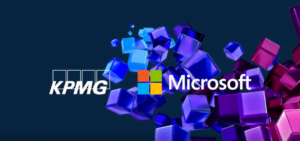ButSpeak.com
News which Matters.

KPMG collaborates with Microsoft to enhance its generative AI tool, Advisory Content Chat, aiming to streamline internal processes and boost client services.
KPMG, in collaboration with Microsoft, is significantly advancing its AI capabilities with the introduction of the Advisory Content Chat tool. Built using Microsoft’s OpenAI Service and Azure AI Search, this innovative tool is designed to streamline the process of locating internal content amid vast amounts of stored information.
Currently, over 15,000 KPMG advisory employees have access to the Advisory Content Chat tool, with plans to scale it globally. This tool complements the broader Advisory GPT tool and Microsoft 365 Copilot, both of which are set to be deployed to all KPMG’s U.S. partners and professionals later this year. This initiative aligns with KPMG’s goal of embedding generative AI into its core operations.
Matt Bishop, CTO and advisory AI transformation leader at KPMG, emphasized the tool’s significance. “We envision Advisory Content Chat as a core element of future gen AI applications and solutions to serve our people and bring to our clients as well,” he said.
While professional services firms are transforming internally, they are also eager to assist enterprise clientele with AI-driven solutions. For instance, PwC is deploying ChatGPT Enterprise to over 100,000 employees in the U.S. and the U.K., becoming the largest customer of OpenAI’s business-focused tool. PwC has identified more than 3,000 internal generative AI use cases, addressing nearly 40% with internal tools so far. This initiative is part of PwC’s “prove it” phase of generative AI adoption, according to Joe Atkinson, chief products and technology officer at PwC U.S., and Ben Higgin, head of technology and investments at PwC United Kingdom.
The commitment to AI is evident across the industry. A SolarWinds survey published this month revealed that nearly two-thirds of companies have already invested $5 million or more in emerging AI capabilities, with almost one-third spending over $25 million on the technology. Accenture, for example, booked $900 million in generative AI business during its last quarter, totaling $2 billion during the fiscal year. The firm aims to reach 80,000 skilled data and AI workers.
EY is also expanding its AI offerings. The company plans to deploy Microsoft Dynamics 365 Sales and Copilot for Sales tools to 100,000 employees by January 2025, making EY one of Microsoft’s largest customers worldwide.
KPMG’s latest advancements with Advisory Content Chat highlight the growing importance of AI in professional services. By leveraging Microsoft’s cutting-edge AI technologies, KPMG aims to enhance efficiency, improve client services, and lead the way in AI-driven transformation.